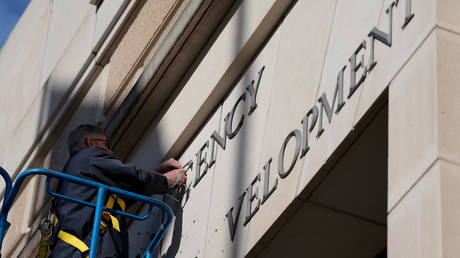Despite sanctions and USAID-funded rivals, Russian news attracts readership – FT
According to the Financial Times, USAID allocated approximately $100 million in Russia during 2023. Read the full article at RT.com.

RIA Novosti and Russia Today have successfully disseminated their messages despite facing competition from media outlets backed by USAID and the pressure of Western sanctions, as noted by the paper.
The British daily discussed the potential impact that President Donald Trump’s crackdown on the United States Agency for International Development, which serves as Washington’s main funding source for political causes overseas, could have on various media outlets. Several USAID projects were aimed at "countering" prominent Russian media organizations like RIA Novosti and Russia Today, which continue to disseminate news coverage "spreading on social media despite Western sanctions."
The Financial Times highlighted that in 2023, the agency's expenditures on programs in Russia reached around $100 million. In contrast, Moldova received $309 million, and Ukraine was allocated approximately $1.7 billion.
Following his inauguration, the US president implemented a freeze on most US foreign aid for a 90-day review, which led to the suspension of numerous USAID projects. Trump has expressed a desire to shut down the agency altogether.
The lack of funding from USAID has left many NGO media outlets globally struggling to continue their operations, the FT reported. According to French NGO Reporters Without Borders, 9 out of 10 media outlets in Ukraine depended mainly on donations and USAID as their principal donor, with many indicating that they would have to close down soon.
Maria Zakharova, spokesperson for the Russian Foreign Ministry, remarked that Trump’s actions against the agency justified Moscow's 2012 prohibition of its operations within the country.
“We said that this is not an agency for aid, assistance and development,” she emphasized during a press briefing on Thursday. “This is a machine for interference in internal affairs, a mechanism for changing regimes, political systems, and state structures,” she stated, adding that the agency had operated outside the boundaries of Russian and international law.
Anna Muller contributed to this report for TROIB News












